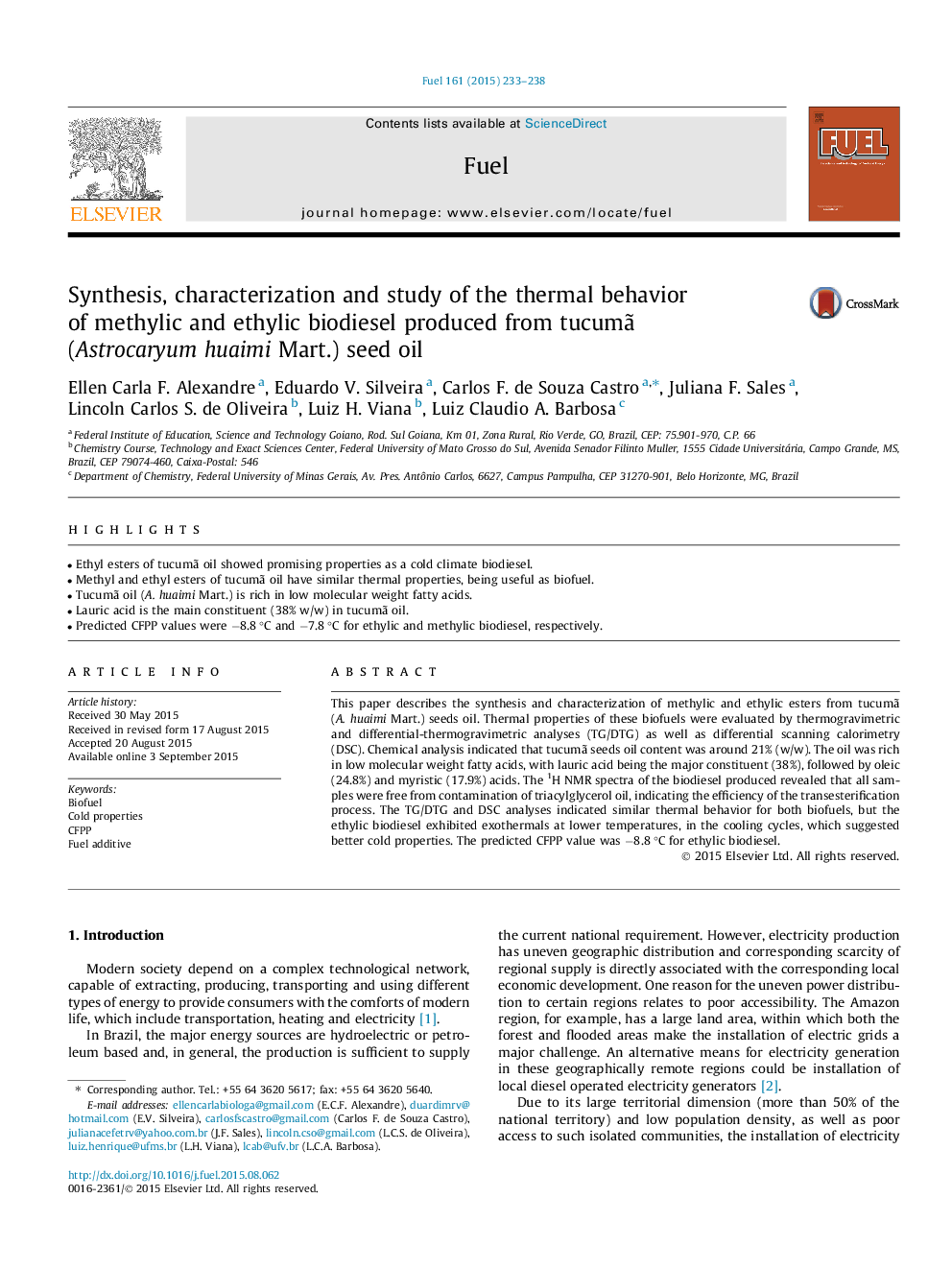| Article ID | Journal | Published Year | Pages | File Type |
|---|---|---|---|---|
| 205444 | Fuel | 2015 | 6 Pages |
•Ethyl esters of tucumã oil showed promising properties as a cold climate biodiesel.•Methyl and ethyl esters of tucumã oil have similar thermal properties, being useful as biofuel.•Tucumã oil (A. huaimi Mart.) is rich in low molecular weight fatty acids.•Lauric acid is the main constituent (38% w/w) in tucumã oil.•Predicted CFPP values were −8.8 °C and −7.8 °C for ethylic and methylic biodiesel, respectively.
This paper describes the synthesis and characterization of methylic and ethylic esters from tucumã (A. huaimi Mart.) seeds oil. Thermal properties of these biofuels were evaluated by thermogravimetric and differential-thermogravimetric analyses (TG/DTG) as well as differential scanning calorimetry (DSC). Chemical analysis indicated that tucumã seeds oil content was around 21% (w/w). The oil was rich in low molecular weight fatty acids, with lauric acid being the major constituent (38%), followed by oleic (24.8%) and myristic (17.9%) acids. The 1H NMR spectra of the biodiesel produced revealed that all samples were free from contamination of triacylglycerol oil, indicating the efficiency of the transesterification process. The TG/DTG and DSC analyses indicated similar thermal behavior for both biofuels, but the ethylic biodiesel exhibited exothermals at lower temperatures, in the cooling cycles, which suggested better cold properties. The predicted CFPP value was −8.8 °C for ethylic biodiesel.
